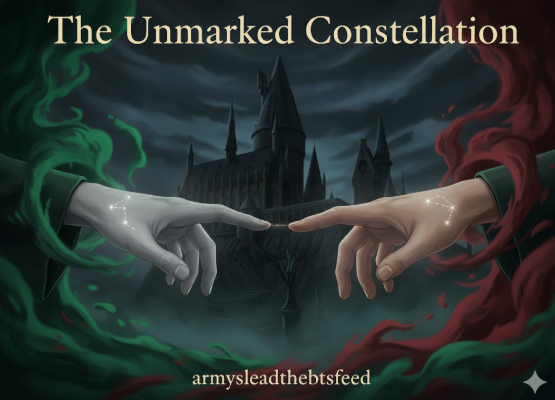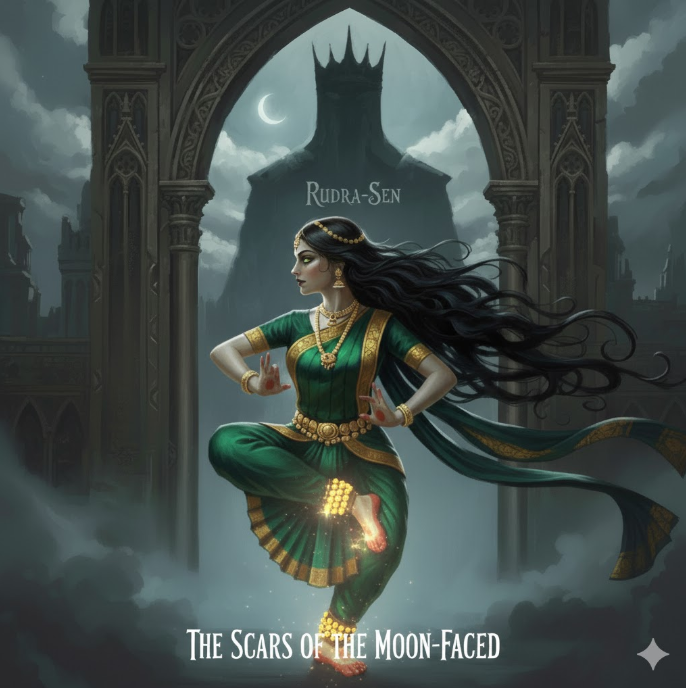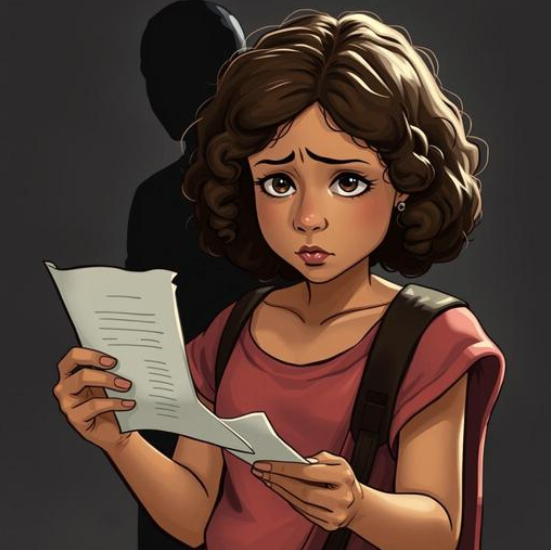The air in the Literature Department’s old wing settled into a rhythm as steady as the monsoon’s drizzle. Meera slipped into her routine: morning lectures in the stone-walled classroom, a packed lunch eaten quickly at an empty table, and the afternoon hours devoted to the library, her true sanctuary. Ayan had, to her quiet relief, kept his distance since the Freshers' Night, a respectful retreat that allowed her anxiety to subside, but also, surprisingly, left a small, cold emptiness where his presence used to be.
One Tuesday afternoon, she was deep in the bowels of the library’s colonial section, pulling out a slim volume of Virginia Woolf’s essays. She sat at her usual desk, opened the book to the marked page, and saw something that didn't belong. Tucked between the pages, marking her reading spot, was a small, square slip of parchment.
She frowned. It was a piece of archival paper, the kind used for fine prints, not cheap college stationery. Unfolding it, she found a single line written in a confident, flowing hand—not quite cursive, but with the distinct grace of a fountain pen:
“The world is a great volume, and man the index to it.”
Meera stared at the line. It wasn’t a quote she recognized immediately, but it smelled faintly of ink and paper, and somehow, a distant whiff of cardamom. Her heart gave a slow, unwelcome thump. She scanned the long library room. The usual scattering of seniors and post-grads were bent over books, silent and absorbed. No Ayaan.
She tore the parchment into tiny pieces and stuffed them deep into the bottom of her tote bag. Someone was playing a childish trick, or perhaps a senior had mislaid a note. She refused to think it was him. She had asked for no complications, and this felt dangerously close to one.
The next day, during the dullest lecture on Restoration Drama, she scribbled notes on her pad, her focus fractured. When the professor dismissed them, she gathered her books quickly. It wasn't until she reached her PG and spread her notes on the bed that she saw it: a small, white card slipped inside the spiral binding of her notebook.
This time, the writing was sharper, the sentiment more pointed:
You have the kind of eyes that make one wish to read all the unwritten pages within you.
This was no accident. The handwriting was identical to the note from the library, but this one was personalized, intimate. Her cheeks burned. She slammed the notebook shut, feeling a prickle of genuine panic. He had been in her orbit, close enough to slip the card in while she was distracted by the lecture, and she hadn't noticed.
He’s violating my space, she thought, the indignation a welcome defense against the tremor of curiosity the words caused.
Meera decided to address it directly. She found Ayaan outside the photography lab the following afternoon, talking animatedly with a group of friends about lighting. He smiled easily when he saw her approach, the conversation dissolving instantly.
“Meera. Something wrong?” he asked, his tone perfectly neutral.
She held out the small, folded card, her hand steady despite the rapid pulse in her throat. “Is this you?”
Ayan took the card, his eyes tracing the careful script. He looked up, his expression one of calm acknowledgment, not guilt. “Yes. I wrote it.”
“Why?” The word came out sharper than she intended. “I told you I don’t want complications. I came here to study, not for… games.”
He leaned against the brick wall, slinging his camera back over his shoulder. “It’s not a game, Meera. It’s an observation. You are entirely defined by the books you read and the quiet corners you keep. I’m just giving you a quote you might enjoy, or an observation I find beautiful.”
“I don’t need your observations. They make me feel watched.”
“You are being watched, but only by me, and with genuine admiration,” he countered softly. He took a step closer, reducing the distance between them just enough to make her heart stutter. “I respect your commitment to your studies. But I won't pretend I don't see you. And the only way I can keep talking to you, when you won’t let me talk to you in person, is through the language you understand: ink on paper.”
He paused, letting the weight of the phrase settle. “It’s non-intrusive. You can choose to throw it away, to ignore it, or to write back. It’s your choice.”
Meera looked down at her sandals on the damp pavement, her mind racing. This wasn't the clumsy chasing she had expected; this was a thoughtful siege of her intellectual defenses. It was annoyingly, deeply flattering.
“Don’t do it again,” she managed, her voice lacking the firmness she hoped for.
“I heard you,” he said, but his lips curved into the ghost of a smile. “But Meera, you walk around with a hundred stories inside you. And all I have is a pen and paper. I can’t stop writing.”
He didn't wait for her reply, instead giving her a small, respectful nod and turning back to his friends.
As she walked back to her PG, the words resonated in her mind: I can't stop writing. It felt less like a threat and more like a promise whispered in the quiet corner of her heart. She hadn't thrown the note away. It was folded neatly in the pocket of her kurti, a silent, secret testament to the fact that someone, for the first time, was taking the time to read the margins of her life.






Write a comment ...